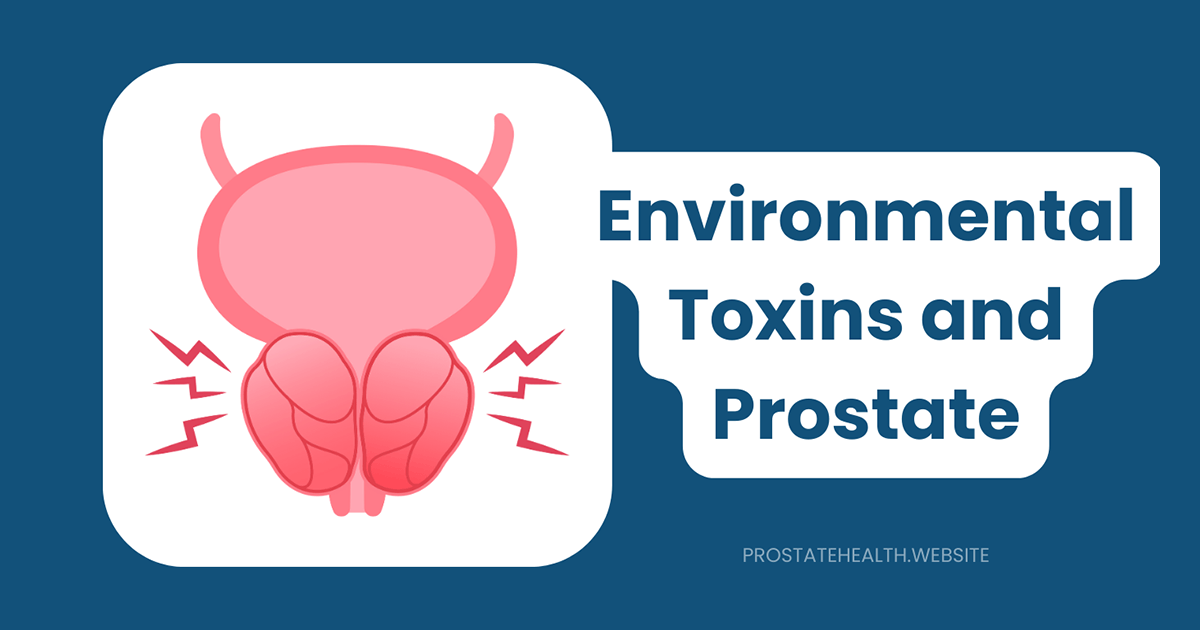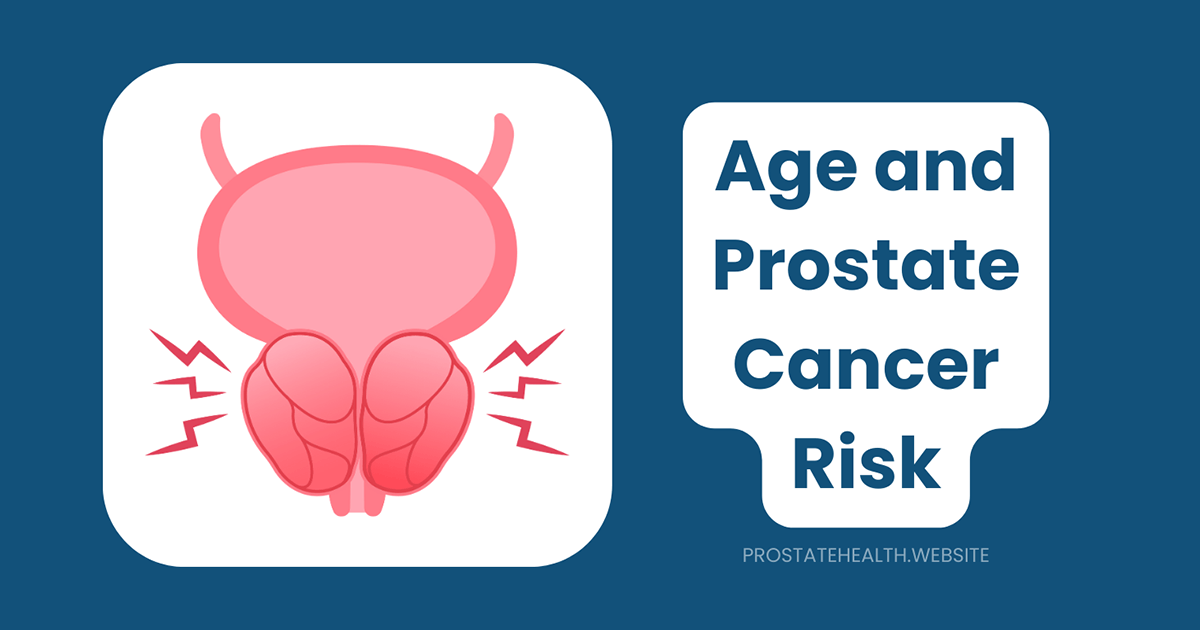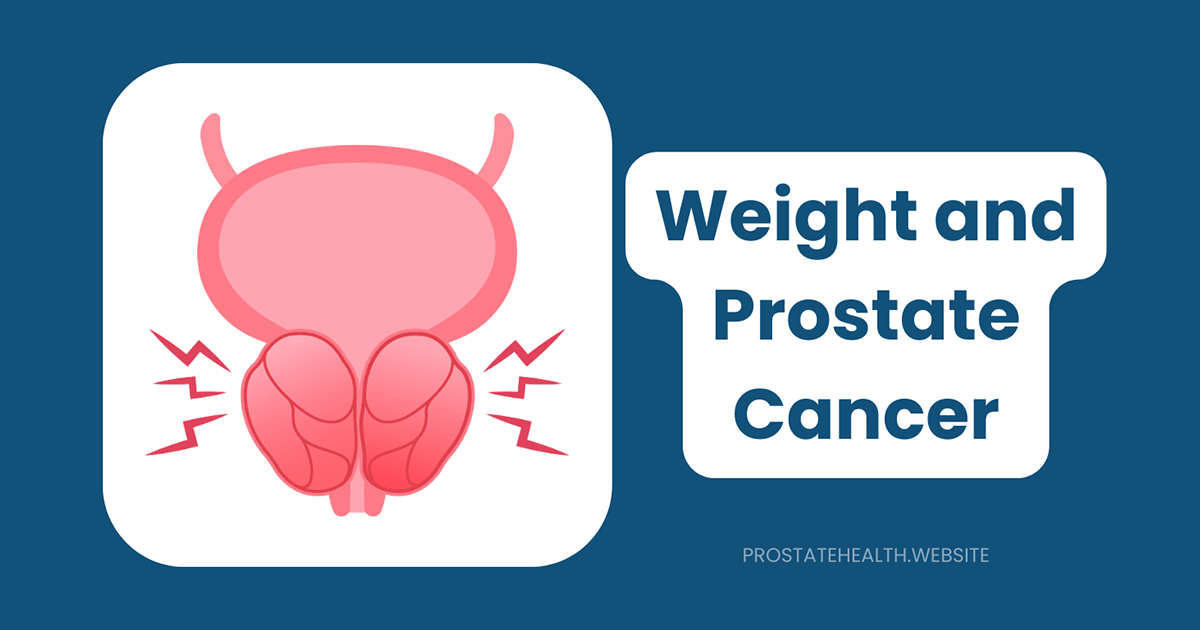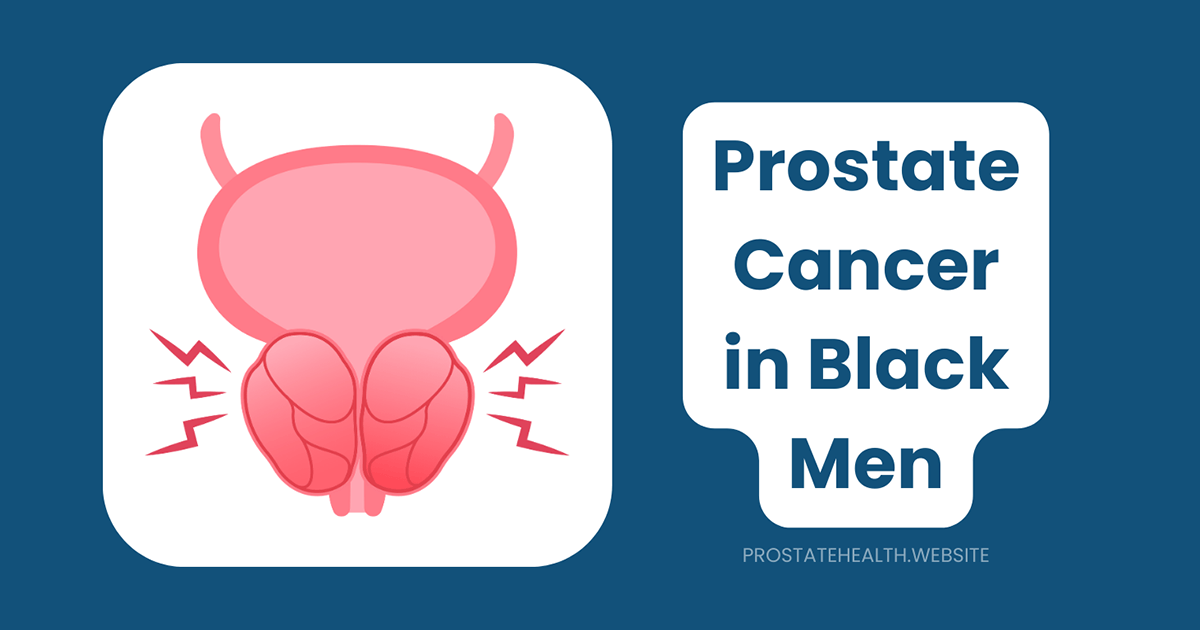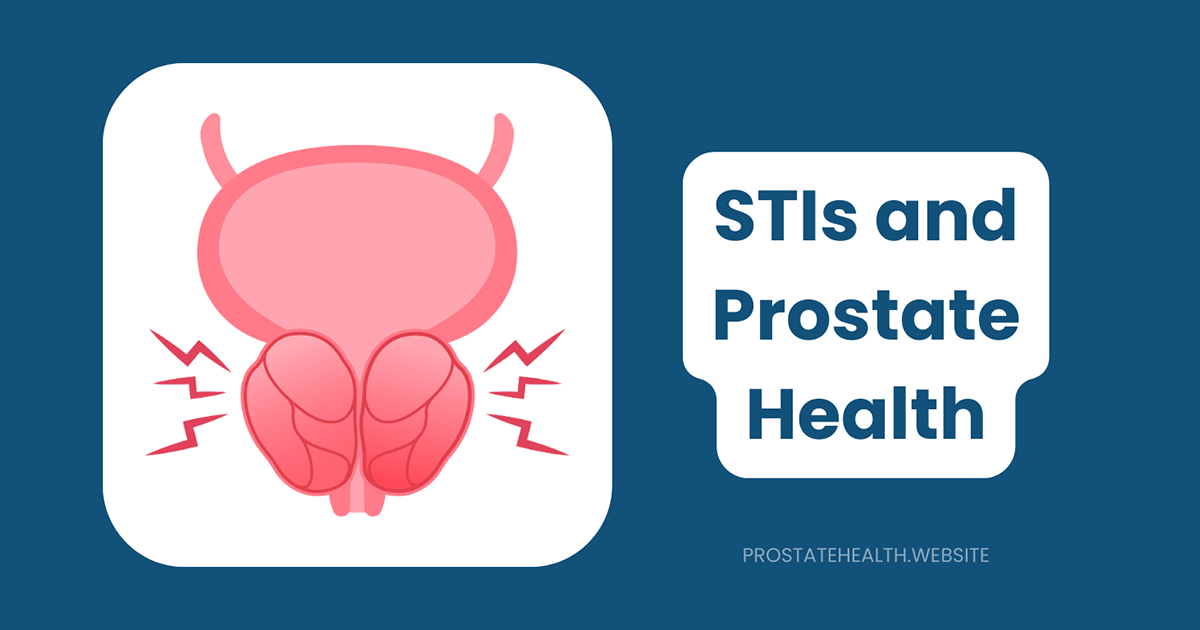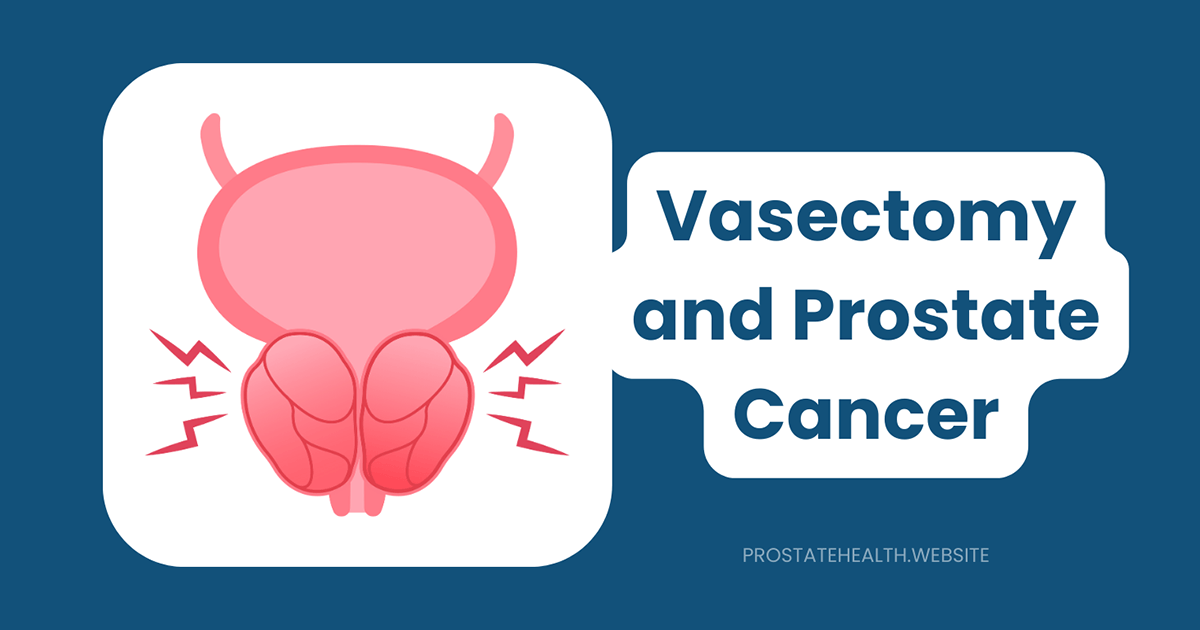Inflammation and Prostate Disease: The Hidden Connection
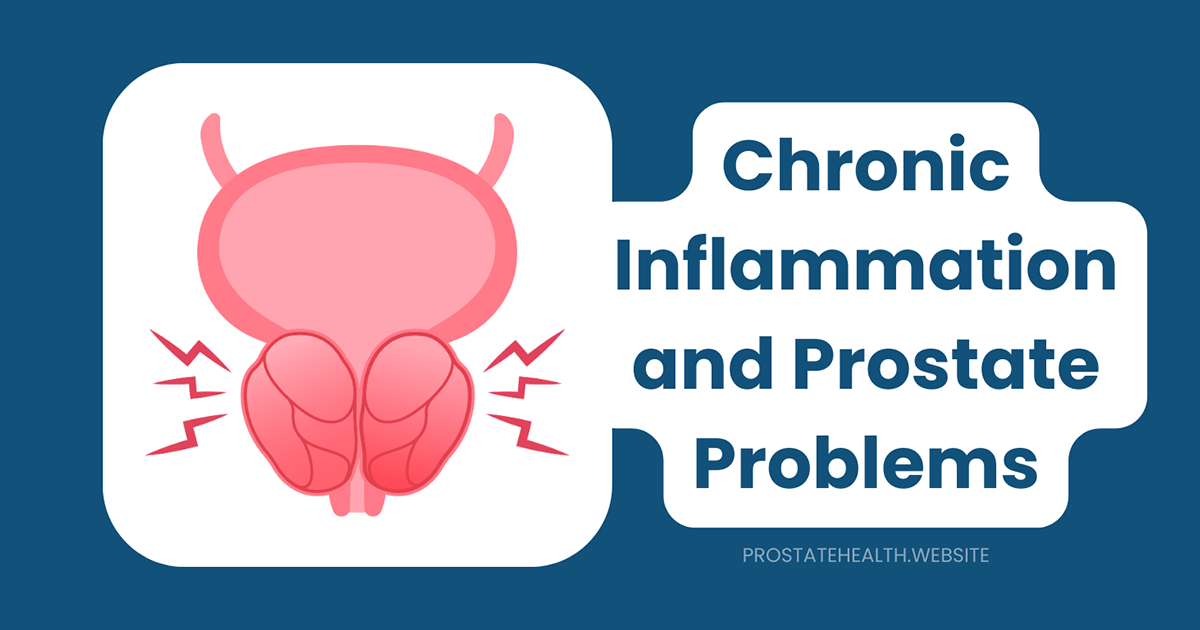
Inflammation—the body’s response to injury or infection—plays a crucial but often overlooked role in prostate health. While most men are familiar with common prostate conditions like benign prostatic hyperplasia (BPH) and prostate cancer, many don’t realize that inflammation is a key underlying factor that connects and contributes to virtually all prostate diseases.
Recent research has shed new light on how inflammation affects the prostate, revealing complex relationships between our immune system, lifestyle factors, and prostate health. Understanding these connections can help men make better-informed decisions about prevention, screening, and treatment of prostate conditions.
In this comprehensive guide, we’ll explore the hidden connection between inflammation and prostate disease, examining the latest scientific evidence and providing practical insights for maintaining optimal prostate health.
Understanding Prostate Inflammation: The Basics
Before diving into specific conditions, let’s establish what inflammation in the prostate actually means and how it manifests.
What Is Prostate Inflammation?
Inflammation is the body’s natural response to injury, infection, or irritation. When inflammation occurs in the prostate gland, immune cells infiltrate the tissue, causing swelling, increased blood flow, and the release of various inflammatory chemicals.
Dr. James Wilson, urologist at University Medical Center, explains: “Prostate inflammation can be acute—coming on suddenly and severely—or chronic, persisting at a low level for months or even years. Chronic inflammation is particularly concerning because it can silently damage prostate tissue over time without causing obvious symptoms.”
Types of Inflammatory Prostate Conditions
Several prostate conditions are directly related to inflammation:
Prostatitis
Prostatitis—inflammation of the prostate gland—is the most obvious inflammatory prostate condition. It affects approximately 10-15% of men in the United States and accounts for nearly 2 million doctor visits annually. Prostatitis comes in several forms:
- Acute bacterial prostatitis: Sudden infection with severe symptoms
- Chronic bacterial prostatitis: Recurring infection with milder symptoms
- Chronic prostatitis/chronic pelvic pain syndrome (CP/CPPS): Long-term pelvic pain and urinary symptoms without confirmed infection
- Asymptomatic inflammatory prostatitis: Inflammation without symptoms, often discovered incidentally
Benign Prostatic Hyperplasia (BPH)
While BPH is primarily characterized by prostate enlargement, research increasingly shows that inflammation plays a significant role in its development and progression.
A January 2025 study published in the journal Aging examined 219 men (144 with BPH and 75 without) and found that men with BPH had significantly higher levels of pro-inflammatory molecules and lower levels of anti-inflammatory substances in their blood. This inflammatory imbalance was even more pronounced in men with both BPH and metabolic syndrome.
Prostate Cancer
Perhaps most significantly, chronic inflammation appears to be an important factor in the development and progression of prostate cancer. Inflammatory processes can damage DNA, promote cell proliferation, and create an environment conducive to cancer development.
A 2025 review published in PubMed highlighted that “chronic inflammation plays a significant role in the progression of prostate cancer” and discussed various molecular pathways through which inflammation contributes to carcinogenesis.
The Inflammation Cascade: How It Affects the Prostate
To understand how inflammation impacts prostate health, it’s helpful to examine the biological mechanisms involved.
Acute vs. Chronic Inflammation
Acute inflammation is a normal, healthy response to infection or injury. It helps the body fight pathogens and repair damaged tissue. However, when inflammation persists over time, it becomes chronic and can cause harm.
Dr. Sarah Williams, immunologist specializing in inflammatory conditions, notes: “Acute inflammation is like calling in the fire department to put out a fire—it’s necessary and beneficial. Chronic inflammation is like having the fire department constantly spraying water on your house even when there’s no fire—it causes damage over time.”
Key Inflammatory Pathways in the Prostate
Several specific inflammatory pathways have been identified in prostate disease:
NF-κB Pathway
The nuclear factor kappa B (NF-κB) pathway is a master regulator of inflammation that:
- Activates genes involved in immune response
- Promotes cell survival and proliferation
- Can contribute to cancer development when chronically activated
Cytokine Signaling
Cytokines are signaling proteins that regulate inflammation:
- Pro-inflammatory cytokines like IL-1, IL-6, and TNF-α are elevated in prostate diseases
- These cytokines can promote cell growth, angiogenesis (new blood vessel formation), and tissue remodeling
- Chronic elevation of these signals can create an environment conducive to disease progression
Oxidative Stress
Inflammation generates reactive oxygen species (ROS) that can damage cells:
- ROS can cause DNA mutations that may lead to cancer
- Oxidative stress markers are elevated in men with prostate conditions
- The 2025 Aging study found that men with BPH showed more signs of oxidative stress, indicating chronic inflammation
What Causes Prostate Inflammation?
Multiple factors can trigger or sustain inflammation in the prostate:
Infections
Bacterial infections are a well-established cause of prostate inflammation:
- Urinary tract infections can ascend to the prostate
- Sexually transmitted infections like chlamydia and gonorrhea can affect the prostate
- Non-sexually transmitted organisms like E. coli can cause prostatitis
Recent research has also focused on the potential role of viruses and the prostate microbiome (the community of microorganisms living in the prostate) in promoting inflammation.
Dietary Factors
Diet can significantly influence prostate inflammation:
- High-fat diets, particularly those rich in saturated fats, may promote inflammation
- Processed foods containing artificial additives and preservatives can trigger inflammatory responses
- Alcohol consumption may exacerbate inflammation in some men
- Antioxidant-rich foods like fruits, vegetables, and omega-3 fatty acids may help reduce inflammation
Metabolic Factors
Metabolic health is increasingly recognized as a key factor in prostate inflammation:
- Obesity is associated with systemic inflammation that can affect the prostate
- Metabolic syndrome (a cluster of conditions including high blood pressure, high blood sugar, excess body fat, and abnormal cholesterol levels) is linked to more severe prostate inflammation
- Insulin resistance may promote inflammatory processes in prostate tissue
The 2025 Aging study specifically highlighted that “the imbalance of inflammatory markers was more pronounced in men with both BPH and metabolic syndrome,” suggesting a strong connection between metabolic health and prostate inflammation.
Environmental Exposures
Various environmental factors may contribute to prostate inflammation:
- Heavy metals: A 2025 study published in Nature Scientific Reports found associations between certain heavy metals (vanadium, antimony, and lead) and prostate conditions
- Industrial chemicals: Some endocrine-disrupting chemicals may promote inflammation
- Radiation: In some cases, radiation exposure can trigger inflammatory responses
Physical Factors
Physical issues can also lead to prostate inflammation:
- Urinary reflux: Backflow of urine into the prostate ducts
- Pelvic trauma: Injury to the pelvic area
- Pelvic floor dysfunction: Tension or dysfunction in the pelvic floor muscles
Autoimmune Processes
In some cases, the body’s immune system may mistakenly attack prostate tissue:
- Autoantibodies against prostate tissue have been detected in some men with chronic prostatitis
- Dysregulated immune responses may perpetuate inflammation even after the initial trigger is gone
- Genetic factors may predispose some men to autoimmune-related prostate inflammation
Dr. Robert Chen, researcher in prostate inflammation, explains: “What’s fascinating about prostate inflammation is that it can be triggered by so many different factors, and often multiple factors are at play simultaneously. This complexity helps explain why prostate conditions can be challenging to treat effectively.”
Inflammation and Specific Prostate Conditions
Let’s examine how inflammation contributes to each major prostate condition in more detail:
Prostatitis: Inflammation as the Primary Issue
In prostatitis, inflammation is the defining feature of the condition:
Acute Bacterial Prostatitis
- Caused by bacterial infection
- Characterized by severe inflammation
- Symptoms include fever, chills, intense pelvic pain, and difficult urination
- Typically responds well to antibiotics
Chronic Bacterial Prostatitis
- Involves persistent bacterial infection and inflammation
- Symptoms include recurring UTIs, pelvic discomfort, and urinary issues
- More difficult to treat than acute prostatitis
- May require longer courses of antibiotics
Chronic Prostatitis/Chronic Pelvic Pain Syndrome (CP/CPPS)
This complex condition affects approximately 90-95% of men with prostatitis and has been the subject of significant research:
- Inflammation is present but often without identifiable infection
- May involve neurological sensitization and pelvic floor muscle dysfunction
- Recent research from April 2025 (reported on UroToday) examined brain function alterations in patients with CP/CPPS across varying symptom severities
- Another 2025 study investigated the effects of extracorporeal shockwave therapy for CP/CPPS
Dr. Wilson notes: “CP/CPPS is one of the most challenging conditions we treat in urology. The inflammation appears to be driven by multiple factors, and treatment often requires a multimodal approach addressing physical, psychological, and lifestyle components.”
BPH: Inflammation as a Contributing Factor
While BPH is characterized by prostate enlargement, inflammation plays a crucial role:
- Inflammatory cells are found in approximately 70% of BPH tissue samples
- Inflammatory markers correlate with prostate size and symptom severity
- Metabolic factors like obesity and diabetes increase both inflammation and BPH risk
The 2025 Aging study provided important new insights, finding that “men with BPH had significantly higher levels of pro-inflammatory molecules such as 12S-HETE and 5-HETE” and “lower levels of anti-inflammatory substances like lipoxin A4.” The study authors suggested that “inflammatory-related molecules in the blood may play a key role in the development of BPH.”
Prostate Cancer: Inflammation as a Promoter
The relationship between inflammation and prostate cancer is particularly significant:
Precancerous Changes
Chronic inflammation can lead to a condition called proliferative inflammatory atrophy (PIA), which may be a precursor to prostate cancer:
- PIA lesions show signs of tissue damage and regeneration
- These areas often contain genetic changes associated with cancer development
- PIA may progress to prostatic intraepithelial neoplasia (PIN) and eventually to cancer
Cancer Promotion
Once cancer develops, inflammatory processes can promote its progression:
- Inflammatory cytokines can stimulate cancer cell growth and invasion
- Immune cells in the tumor microenvironment may support rather than fight cancer
- Angiogenesis (formation of new blood vessels) is promoted by inflammation, supporting tumor growth
A 2025 review highlighted that “various intrinsic and environmental factors contribute to chronic prostatic inflammation, including bacterial and viral infections, dietary factors, aging, hormonal imbalance, autoimmune responses, and certain medications” and that “inflammatory pathways implicated in prostate cancer include NF-κB, PI3K/AKT, and JAK/STAT.”
Diagnosing Inflammatory Prostate Conditions
Detecting and characterizing inflammation in the prostate involves several approaches:
Clinical Evaluation
- Medical history: Assessment of symptoms, risk factors, and previous conditions
- Physical examination: Including digital rectal examination (DRE) to assess prostate tenderness and enlargement
- Symptom questionnaires: Standardized tools to evaluate severity and impact of symptoms
Laboratory Tests
- Urinalysis and urine culture: To detect infection or inflammatory markers
- Expressed prostatic secretions (EPS): Fluid obtained after prostate massage, examined for white blood cells and bacteria
- Blood tests: Including PSA (which can be elevated with inflammation) and inflammatory markers
- Semen analysis: May show signs of inflammation or infection
Imaging and Other Procedures
- Transrectal ultrasound: Visualizes the prostate and may show inflammatory changes
- MRI: Provides detailed images that can show inflammation and other abnormalities
- Biopsy: Allows direct examination of prostate tissue for inflammation and other changes
Dr. Michael Chen, pathologist specializing in prostate disease, explains: “When we examine prostate tissue under the microscope, we can see inflammatory cells and the damage they cause. The pattern and type of inflammation can help us understand the underlying cause and guide treatment decisions.”
Treating and Preventing Prostate Inflammation
Managing inflammatory prostate conditions involves addressing both the inflammation itself and its underlying causes:
Medical Treatments
Several medication classes target prostate inflammation:
Antibiotics
- First-line treatment for bacterial prostatitis
- Selection based on culture results when available
- May require extended courses for chronic bacterial prostatitis
Anti-inflammatory Medications
- NSAIDs (non-steroidal anti-inflammatory drugs) can reduce pain and inflammation
- Specialized anti-inflammatory agents are being investigated for prostate conditions
- Corticosteroids may be used in some cases of severe inflammation
Alpha Blockers
- Relax smooth muscle in the prostate and bladder neck
- Help improve urine flow and reduce symptoms
- Often combined with other treatments
5-alpha Reductase Inhibitors
- Reduce prostate size in BPH
- May have anti-inflammatory effects
- Take several months to achieve maximum benefit
Lifestyle Modifications
Several lifestyle changes can help reduce prostate inflammation:
Anti-inflammatory Diet
- Mediterranean diet rich in fruits, vegetables, whole grains, fish, and olive oil
- Omega-3 fatty acids from fatty fish, flaxseeds, and walnuts
- Antioxidant-rich foods including berries, dark leafy greens, and colorful vegetables
- Limited processed foods, red meat, and sugar
Regular Physical Activity
- Moderate exercise reduces systemic inflammation
- Helps maintain healthy weight and metabolic function
- May improve pelvic blood flow and reduce congestion
Stress Management
- Chronic stress can exacerbate inflammation
- Stress reduction techniques like meditation, deep breathing, and yoga may help
- Adequate sleep is important for immune regulation
Pelvic Floor Physical Therapy
- Particularly helpful for CP/CPPS
- Addresses muscle tension and dysfunction
- A 2025 randomized controlled trial (mentioned in UroToday) is examining long-term effects of pelvic floor training in male chronic pelvic pain
Emerging Treatments
Research continues to identify new approaches to managing prostate inflammation:
Targeted Anti-inflammatory Therapies
- Medications that target specific inflammatory pathways
- May have fewer side effects than current treatments
- Still largely in research phases
Microbiome Modulation
- Probiotics or prebiotics to promote healthy prostate microbiome
- May help reduce inflammation by supporting beneficial bacteria
- Research in this area is preliminary but promising
Extracorporeal Shockwave Therapy
- A 2025 study (reported on UroToday) assessed the safety and efficacy of this approach for CP/CPPS
- Uses acoustic waves to potentially reduce inflammation and improve tissue healing
- Shows promise in early research
The Future of Research: What’s on the Horizon
Research into prostate inflammation continues to evolve rapidly:
Biomarkers for Inflammation
Scientists are working to identify better markers of prostate inflammation:
- Blood and urine tests that can detect specific inflammatory molecules
- Imaging techniques that can visualize inflammation non-invasively
- Genetic markers that may predict inflammatory responses
Personalized Approaches
The future likely involves more personalized treatment based on:
- Inflammatory profiles: Identifying the specific inflammatory pathways active in each patient
- Genetic factors: Understanding how genetic variations affect inflammatory responses
- Microbiome analysis: Characterizing each person’s prostate microbiome to guide treatment
Preventive Strategies
Research is also focusing on preventing inflammatory prostate conditions:
- Early intervention in men with risk factors
- Lifestyle programs specifically designed to reduce prostate inflammation
- Targeted supplements that may help maintain prostate health
Dr. Chen notes: “The field is moving toward a much more nuanced understanding of prostate inflammation. Rather than treating all inflammatory conditions the same way, we’re beginning to appreciate the different inflammatory pathways involved and how they might require different approaches.”
The Bottom Line: What Men Should Know
After reviewing the evidence on inflammation and prostate disease, several key takeaways emerge:
- Inflammation is central, not incidental: Inflammation isn’t just a symptom of prostate disease—it’s often a driving factor in development and progression.
- Multiple triggers exist: Prostate inflammation can be triggered by infections, dietary factors, metabolic issues, environmental exposures, and more.
- Chronic inflammation is particularly concerning: While acute inflammation is a normal response to infection or injury, chronic inflammation can silently damage the prostate over time.
- Lifestyle matters: Diet, exercise, stress management, and other lifestyle factors can significantly influence prostate inflammation.
- Early intervention is key: Addressing inflammation early may help prevent progression to more serious conditions.
- Personalized approaches are emerging: The future of prostate health will likely involve more personalized strategies based on each man’s specific inflammatory profile.
Dr. Wilson emphasizes: “Understanding the role of inflammation in prostate disease represents a paradigm shift in how we think about these conditions. Rather than viewing BPH, prostatitis, and prostate cancer as separate entities, we now see them as potentially connected through inflammatory processes. This opens up new avenues for prevention and treatment.”
For men concerned about prostate health, this research underscores the importance of anti-inflammatory lifestyle choices, regular check-ups, and prompt attention to prostate symptoms. By addressing inflammation, men may be able to reduce their risk of developing serious prostate conditions and improve outcomes if problems do arise.
Resources for Further Information
- American Urological Association
- National Institute of Diabetes and Digestive and Kidney Diseases
- Prostate Cancer Foundation

